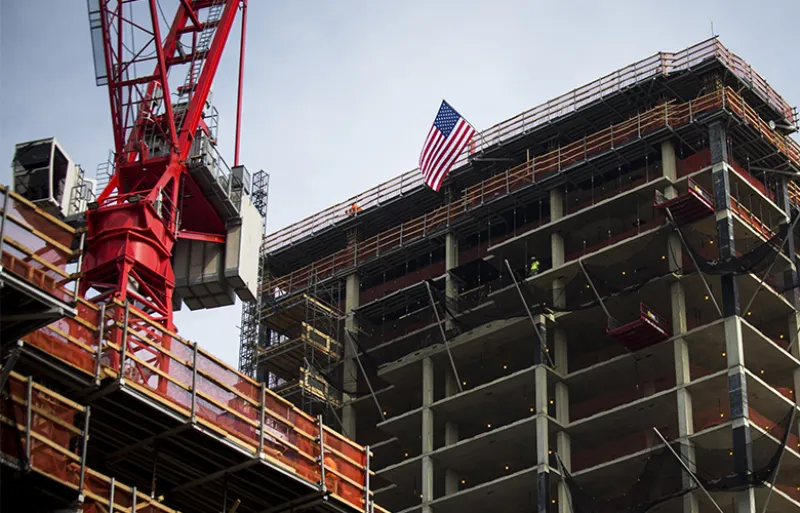LaSalle Investment Management is forecasting a favorable 2018 for real estate in North America.
Fundamentals in the real estate market remain strong and should hold up amid the uncertainty surrounding government policy being set under President Donald Trump, according to a LaSalle report expected to be released December 19. Demand for real estate should increase next year as the economy continues to expand and jobs stay on a path of steady growth, the firm said.
“The main messages we’re giving to institutional investors is to consider this Goldilocks economy as a positive tailwind for 2018,” Jacques Gordon, global head of research and strategy at LaSalle, said in a phone interview.
With e-commerce continuing to reshape the industrial market, demand for warehouses should rise, particularly in the major population centers, according to LaSalle, a real-estate investment manager overseeing about $59 billion of equity and private debt. While uncertainties surround tax and healthcare reform, as well as trade treaties and foreign policy, Gordon sees reason to be optimistic about commercial real estate.
“Most of those moving parts seem to be treating commercial real estate pretty well,” Gordon said. “We’re not being touched with tax status, for instance.”
As e-commerce continues to drive growth in the warehouse market, areas like Chicago, Atlanta and Dallas are particularly attractive because of their high levels of construction, according to the report. Warehouses will likely avoid being hurt by policy changes like tax reform, Gordon said.
Despite the sanguine outlook, there are pockets of concern in real estate. For example, LaSalle said the office space market in cities such as New York, San Francisco and Washington has more supply than demand.
“Offices are going through a lot changes,” Gordon said. “They are perhaps the property type that we’re most cautious about.”
[II Deep Dive: Real Estate Crowdfunding Firm Targets Institutional Investors]
LaSalle expects debt will be “plentiful” in the U.S. in 2018. “The major lending sectors are operating normally without the hurdles of 2017, including the maturity of 2007 vintage loans,” new regulation for commercial mortgage-backed securities, and the Federal Reserve’s oversight of bank real estate, LaSalle said.
Still, for institutional investors interested in debt, Gordon had a few words of caution.
“Commercial property has hit the peaking phase of the cycle,” he said. “It would make sense to use debt instruments that protect you from falling prices.”







